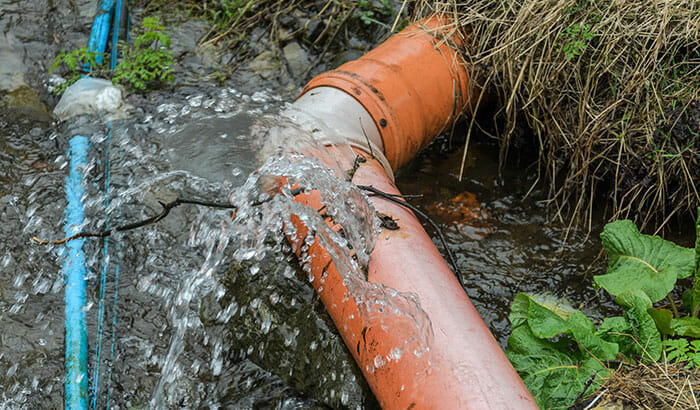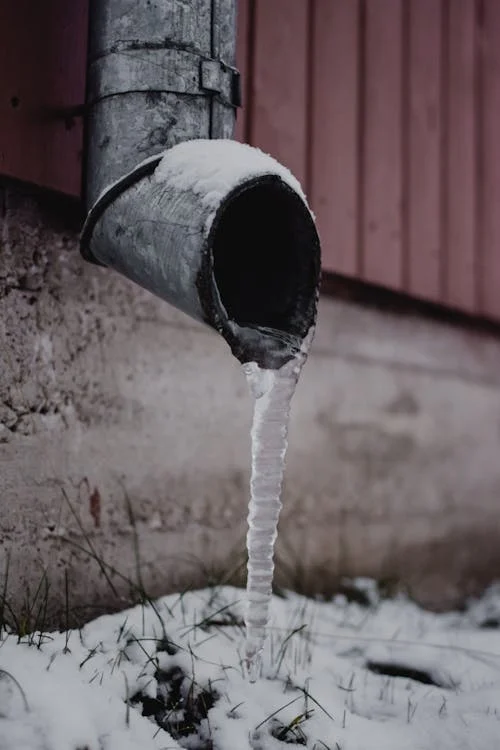Avoiding Ruptured Pipeline: Essential Tips to Shield Your Plumbing
Preventing burst pipes is a critical concern for property owners, particularly throughout colder months when the danger of cold is enhanced. Carrying out calculated measures such as appropriate insulation, regular inspections, and keeping consistent indoor temperatures can dramatically lower the possibility of pipe failure.
Understand Pipeline Vulnerabilities
Comprehending pipeline susceptabilities is vital for efficient pipes maintenance and preventing expensive damages. Numerous factors add to the vulnerability of pipes to bursts, including product make-up, age, and ecological conditions. Older pipelines, particularly those made from galvanized steel or polybutylene, often deteriorate gradually, bring about raised danger of leakages and tears.
Temperature fluctuations can additionally considerably impact pipeline honesty. In chillier climates, water caught in pipes can freeze, exerting and broadening stress on the pipe walls, which may inevitably result in a ruptured. High water stress can strain pipes, specifically at joints and bends, enhancing the likelihood of failure.

Insulate Piping Properly
Appropriate insulation of pipelines is essential for preventing freezing and succeeding ruptureds during cold weather (burst pipe). Protecting your pipes system successfully safeguards versus temperature drops that can bring about expensive damage. Begin by recognizing susceptible areas where pipes are exposed to outdoor temperatures, such as cellars, attic rooms, and exterior walls
Usage foam pipeline insulation sleeves or wrap insulation tape around these areas to give a safety obstacle. Ensure that all areas of the pipelines, specifically those with limited warmth exposure, receive sufficient insulation. Pay special focus to joints and installations, as these are extra at risk to cold.
When insulating, it's necessary to pick materials that meet local building regulations and are ideal for the details atmosphere. For instance, fiberglass insulation is usually advised for its thermal resistance homes - burst pipe. Furthermore, consider using warmth cables or tape in extreme conditions, which can be plugged in to give extra warmth
Routinely inspect shielded pipes for any type of indications of wear or damage, as endangered insulation can lessen its effectiveness. By taking these aggressive actions, you dramatically lower the threat of pipeline bursts, guaranteeing a dependable pipes system throughout the cold weather.
Maintain Regular Temperature
A secure interior temperature level is essential for preventing burst pipes during the frigid months. When temperatures decline, water within pipes can freeze, developing and broadening stress that may eventually create the pipes to ruptured. To alleviate this danger, property owners need to maintain a constant temperature level throughout their space, preferably no reduced than 55 ° F(13 ° C)Making use of a programmable thermostat can aid handle interior temperatures effectively, guaranteeing that spaces with plumbing continue to be cozy even when your house is empty. Pay unique attention to areas that are a lot more at risk to cool, such as basements, attic rooms, and garages. Keeping closet doors open under sinks can likewise permit warmer air from the home to circulate around pipes.
In addition, it is sensible to allow faucets to drip a little during severe cold snaps. This small flow of water can protect against freezing by explanation relieving pressure within the pipelines. Additionally, during especially serious climate events, take into consideration briefly suspending any kind of nighttime setbacks on your thermostat to keep a steady cozy environment. By applying these techniques, property owners can significantly decrease the threat of pipe bursts and protect their pipes systems against the harsh winter months components.
On A Regular Basis Examine Pipes
Routine inspections of plumbing systems are vital for avoiding burst pipes and maintaining overall home honesty. Regular checks allow home owners to determine prospective concerns before they intensify right into pricey repair work or significant water damages. Throughout these evaluations, it is necessary to take a look at visible pipes for indications of rust, leakages, or use. Pay unique focus to areas susceptible to cold, such as basements, attic rooms, and exterior wall surfaces.
In addition, inspecting connections and joints is vital, as these points are commonly vulnerable to leakages. Home owners ought to also analyze water pressure levels, as extreme pressure can strain the pipes system and increase the danger of pipe bursts.
Think about scheduling specialist plumbing inspections at the very least annually, specifically prior to winter, to guarantee your system is their explanation gotten ready for cooler temperatures. Routine examinations not just aid in identifying immediate concerns however also foster lasting upkeep approaches that can enhance the here life expectancy of your plumbing system. By being positive in your strategy, you can guard your home versus the turbulent and pricey repercussions of ruptured pipes. Focusing on plumbing assessments is an investment in your home's health and safety.
Know Emergency Situation Treatments
Comprehending emergency treatments is crucial for every home owner, particularly after carrying out normal plumbing evaluations. Being prepared for a plumbing emergency situation can dramatically mitigate damages and conserve costs.
Following, keep important tools helpful. A pipes emergency situation set ought to include a wrench, plunger, and towels, in addition to a flashlight and a bucket for tiny leaks. Furthermore, consider having the get in touch with information for a relied on plumber readily available, should the situation intensify past your control.
If you find a leakage or burst pipeline, quickly turn off the supply of water and alert your plumbing technician. Furthermore, record the damages with photographs for insurance coverage functions. burst pipe. Be conscious of the indications of potential pipes issues, such as unusual water pressure variations or damp places on wall surfaces
Ultimately, proactive knowledge and swift activity are vital in managing plumbing emergency situations, guaranteeing your home remains protected and lessening possible damages.

Final Thought
Finally, preventing burst pipes demands a multifaceted approach that includes understanding pipeline vulnerabilities, correct insulation, preserving regular indoor temperature levels, normal examinations, and knowledge of emergency situation procedures. By implementing these essential strategies, the threat of plumbing failings can be substantially minimized, thus guaranteeing the longevity and efficiency of the pipes system. Positive actions not only secure against possible damages yet likewise add to general water conservation and the defense of residential or commercial property.
In colder climates, water entraped in pipelines can ice up, increasing and putting in stress on the pipe wall surfaces, which may inevitably lead to a burst. When temperature levels decline, water within pipes can freeze, producing and increasing pressure that may eventually cause the pipes to burst. By carrying out these methods, homeowners can dramatically decrease the danger of pipeline bursts and secure their plumbing systems versus the harsh winter elements.
